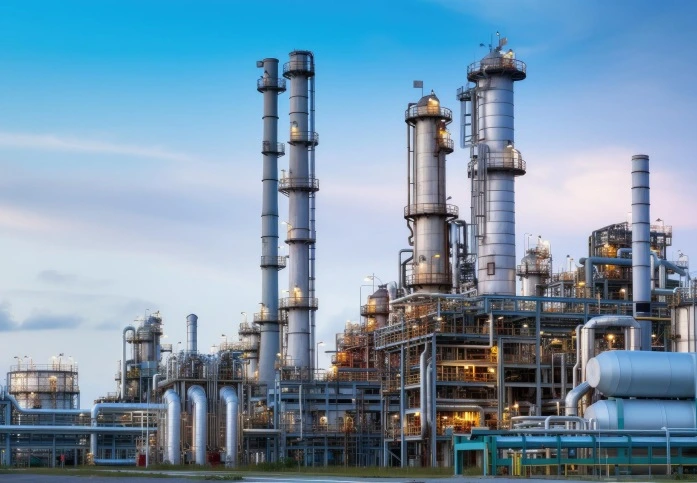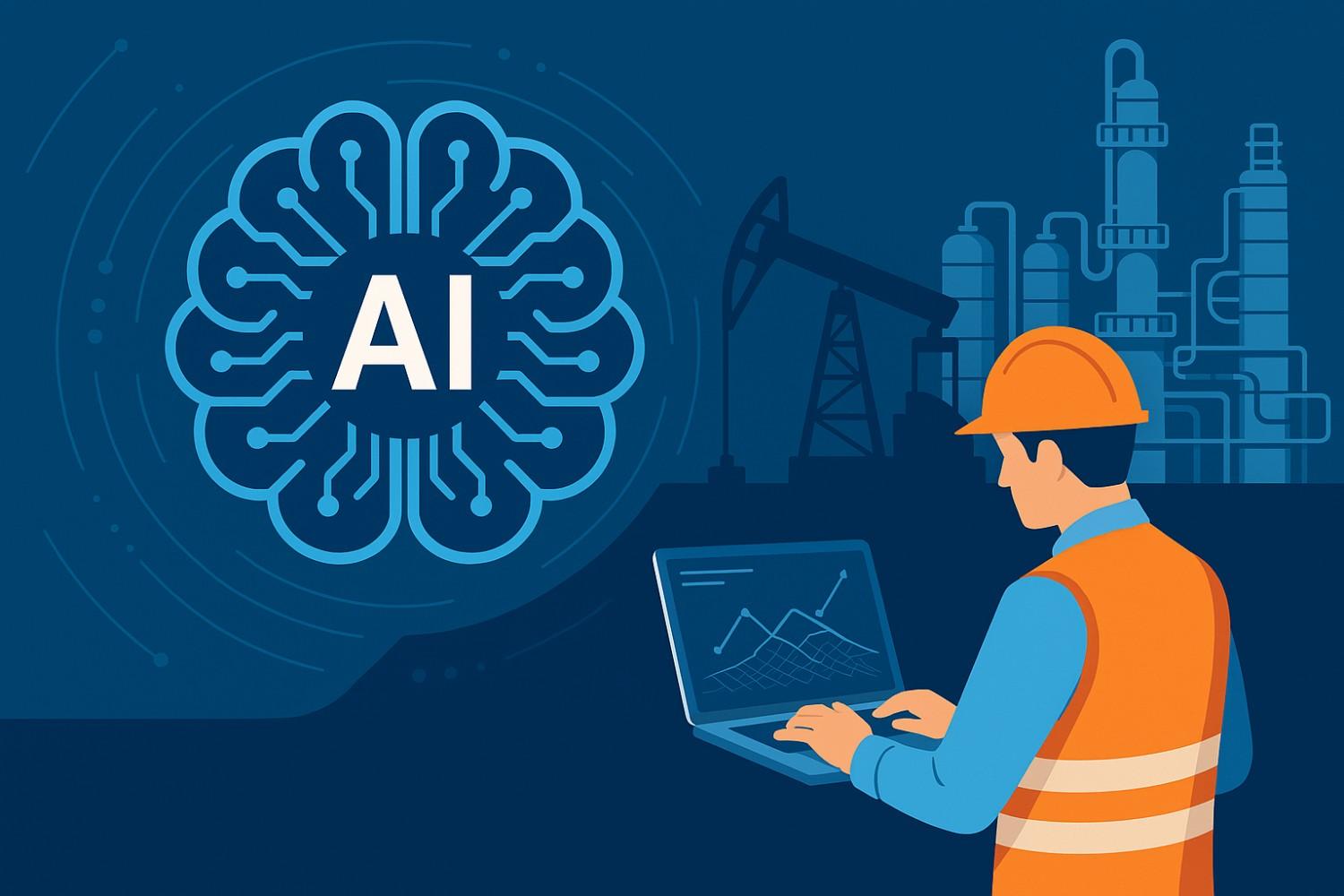Oil refineries face complex challenges in managing production processes that demand precise control and minimal downtime. Operators now rely on digital systems to monitor equipment conditions, adjust parameters, and reduce risks. In an industry where every operational minute counts, the deployment of AI in oil and gas industry practices drives improvements in decision-making and overall efficiency. This article examines how technology is applied to streamline production processes in oil refineries, improve safety, and reduce costs through data-driven insights.
Unlocking Benefits through AI
Implementing AI in oil refineries offers numerous advantages:
- Enhanced Efficiency: AI algorithms analyze vast datasets to identify patterns and predict outcomes, enabling proactive decision-making that improves operational efficiency.
- Predictive Maintenance: AI-driven predictive maintenance anticipates equipment failures before they occur, reducing unplanned downtime and maintenance costs. For instance, Honeywell’s AI solutions have been instrumental in maximizing operational efficiencies through reduced unplanned maintenance and increased reliability.
- Quality Control: AI monitors production quality in real time, ensuring consistent product standards and minimizing waste.
Energy Optimization: AI applications contribute to refinery optimization by monitoring operations during processes like distillation and catalytic cracking, leading to reduced energy consumption and enhanced throughout.
AI in Different Stages of Oil and Gas Operations
AI’s impact spans the entire oil and gas industry value chain, from exploration to distribution.
Upstream Operations: Exploration, Reservoir Development, and Production
In upstream operations, digital tools enhance exploration and reservoir management. Detailed data analysis processes geological information to improve the accuracy of exploration efforts. By integrating sensor data with historical records, operators can predict the locations of potential deposits, reducing the risks associated with drilling and exploration.
- Continuous monitoring ensures optimal extraction rates and minimizes environmental impact during reservoir development and production.
- Advanced data analysis techniques help adjust drilling parameters and optimize production yield.
- Machine learning techniques in the oil and gas industry support trend analysis and production forecasting, leading to better decision-making regarding drilling and extraction strategies.
In this context, the application of AI in oil and gas industry methods is essential for achieving reliable and efficient upstream operations, contributing to better asset management and reduced operational risks.
Midstream Operations: Transportation, Storage, and Infrastructure
The midstream segment involves the transportation and storage of oil, where maintaining the integrity of pipelines and storage facilities is critical.
- Digital systems monitor these assets continuously, ensuring early detection of issues such as leaks or pressure anomalies.
- Data from sensors is analyzed to optimize routes and scheduling, which in turn reduces energy consumption and lowers maintenance costs.
- Automated monitoring systems improve operational reliability by providing timely alerts and performance metrics. These systems support the effective management of transportation logistics and storage facilities, ensuring that operational standards are maintained.
By leveraging data analytics, companies can predict maintenance needs and schedule repairs before failures occur. Incorporating AI in oil and gas industry systems in midstream operations has helped companies achieve more consistent performance and timely maintenance, ultimately contributing to the overall efficiency of oil and gas operations.
At Ingenero, our Applied AI Solutions help oil and gas operators optimize refinery operations with real-time insights, predictive analytics, and intelligent automation.
Downstream Operations: Refining, Storage, and Distribution
Downstream operations focus on refining and processing raw materials to produce finished products. In this phase, precision is crucial. Real-time temperature, pressure, and flow rate monitoring are essential to ensure product quality and operational safety. Digital systems process complex data streams to adjust refining parameters accurately, leading to better control over chemical processes and energy consumption.
Implementing advanced analytics results in significant refinery optimization, improved resource utilization, and reduced waste. Techniques drawn from machine learning in the oil and gas industry enable operators to forecast equipment performance and schedule maintenance effectively. Additionally, digital tools facilitate distribution logistics management, ensuring products meet strict quality criteria before reaching the market. Integrating AI in oil and gas industry technologies in downstream operations reinforces system reliability and supports continuous operational improvement by enabling rapid response to process deviations.
Many refineries are also turning to expert-led Process Safety Services to ensure safe and compliant AI integration across operations.
Challenges in Adoption of AI in Oil Refineries
Despite its benefits, adopting AI in oil refineries presents several challenges:
- Data Quality and Integration: AI in the oil and gas industry develops enormous amounts of data from various sources. Ensuring data quality and integrating disparate data systems remain significant hurdles.
- Skill Gaps: Implementing AI solutions requires specialized skills. A survey revealed that while 92% of energy industry respondents acknowledge the competitive advantage of reskilling the workforce, only 29% invest in retraining, highlighting a significant skills gap.
- Scalability: Implementing AI solutions at scale while ensuring consistent performance and accuracy across various locations can be challenging due to differences in systems and technologies used across refineries.
Future of AI in Oil Refining
The future of AI in the oil and gas industry looks promising, with advancements aimed at addressing current challenges:
- Advanced AI Models: Developing more sophisticated AI models will enhance predictive accuracy and operational efficiency.
- Integration with Emerging Technologies: Combining AI with technologies like the IoT (Internet of Things) and blockchain can further streamline operations and enhance data security.
- Sustainability: AI will promote sustainability by optimizing energy consumption and reducing emissions in refinery operations.
Suggested Read: What Is Edge AI
Conclusion
AI is revolutionizing the oil and gas industry, particularly refinery operations, by enhancing efficiency, safety, and profitability. While challenges in data integration, skill acquisition, and scalability exist, the ongoing advancements in AI technologies and strategic investments in workforce development pave the way for more intelligent and optimized oil refinery processes.


